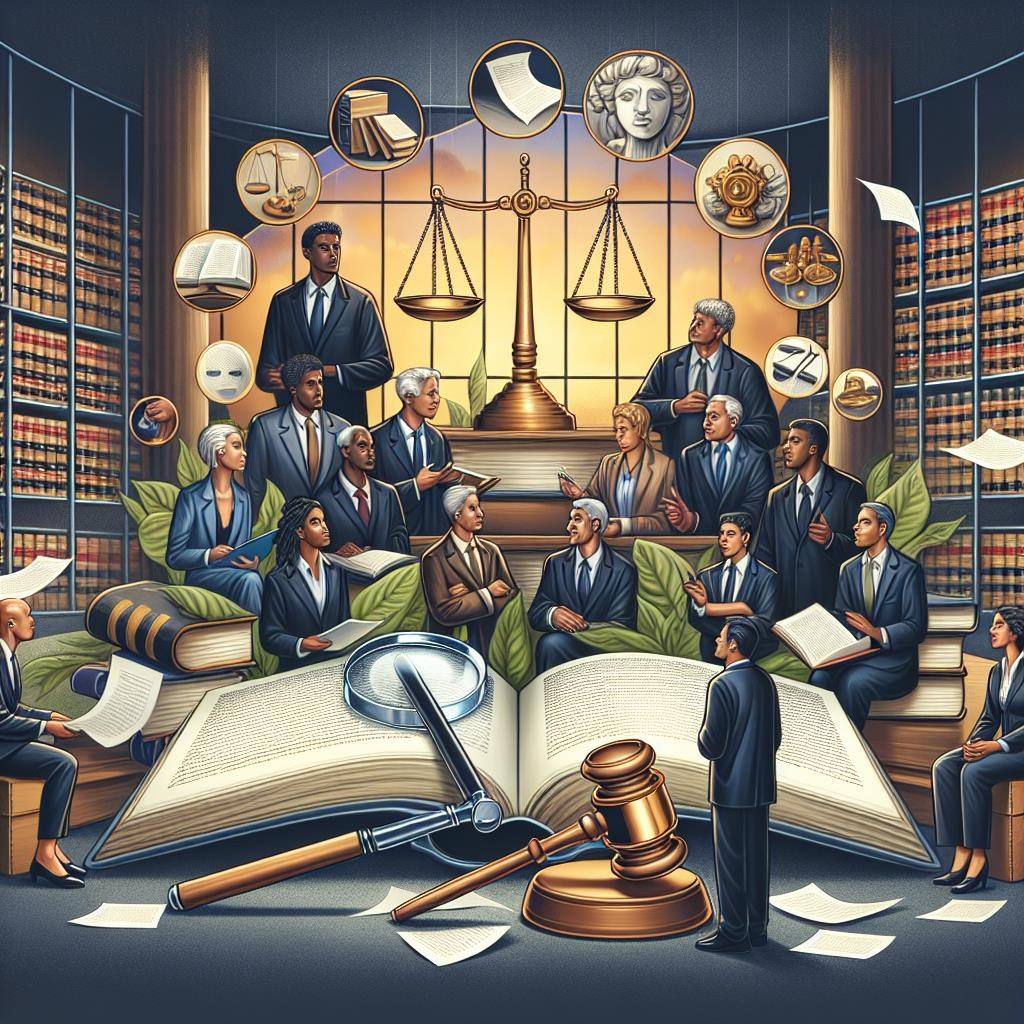In the realm of law, the concept of legal precedent plays a pivotal role in shaping judicial decisions and guiding the interpretation of laws. Legal precedents are established by judicial decisions in previous cases, which serve as a benchmark for future cases with similar circumstances. This article delves into the essence of legal precedents, their significance, and notable cases that have set important precedents in legal history.
What is Legal Precedent?
Legal precedent, often referred to as stare decisis, is a legal principle that mandates courts to follow the rulings of previous cases when the same points arise again in litigation. This doctrine promotes consistency and predictability in the law. By adhering to established precedents, courts can ensure that similar cases are treated in a similar manner, thereby upholding the rule of law.
The Importance of Legal Precedent
- Consistency: Legal precedents help maintain a stable and predictable legal system.
- Efficiency: By relying on previous rulings, courts can expedite the resolution of cases.
- Fairness: By treating similar cases alike, legal precedents promote fairness in judicial outcomes.
- Guidance: They provide guidance to legal practitioners on how to approach cases based on established rulings.
Notable Legal Precedent Cases
Throughout history, numerous cases have established significant legal precedents. Here are a few landmark cases that have had a profound impact on the legal landscape:
1. Brown v. Board of Education (1954)
This landmark Supreme Court case declared racial segregation in public schools unconstitutional. The ruling overturned the precedent set by Plessy v. Ferguson (1896), which upheld the “separate but equal” doctrine. The Brown case set a crucial precedent for civil rights and education reform in the United States.
2. Roe v. Wade (1973)
In Roe v. Wade, the Supreme Court recognized a woman’s constitutional right to privacy, which includes the right to make decisions about abortion. This decision established a precedent that has been the subject of ongoing legal and political debates. news
3. Miranda v. Arizona (1966)
This case established the “Miranda rights,” requiring law enforcement to inform suspects of their rights to silence and legal counsel during interrogations. The precedent set by this ruling has had lasting effects on law enforcement and the rights of the accused.
4. Obergefell v. Hodges (2015)
This case legalized same-sex marriage across the United States, affirming that same-sex couples have the constitutional right to marry. The ruling was based on the principles of equal protection and due process, establishing a significant precedent in the fight for LGBTQ+ rights.
How Legal Precedents Evolve
While legal precedents provide a framework for decision-making, they are not immutable. Courts can overturn previous rulings, especially if societal values change or if the legal reasoning behind a precedent is deemed flawed. This evolution reflects the dynamic nature of law and its ability to adapt to new realities.
Challenges to Legal Precedents
Legal precedents can face challenges for various reasons, including:
- Societal changes that necessitate a reevaluation of established laws.
- Judicial interpretations that reveal inconsistencies in previous rulings.
- Legislative amendments that seek to overturn judicial precedents.
Legal precedents are foundational to the legal system, ensuring that justice is served consistently and fairly. By understanding notable precedent cases and their implications, individuals can better navigate the complexities of the law. As society evolves, so too will the legal precedents that govern our lives, highlighting the importance of staying informed about changes in the legal landscape.
